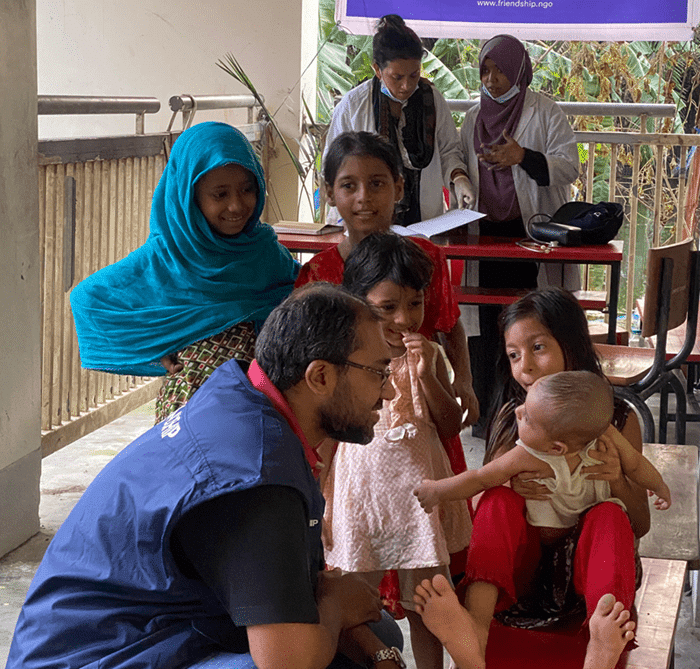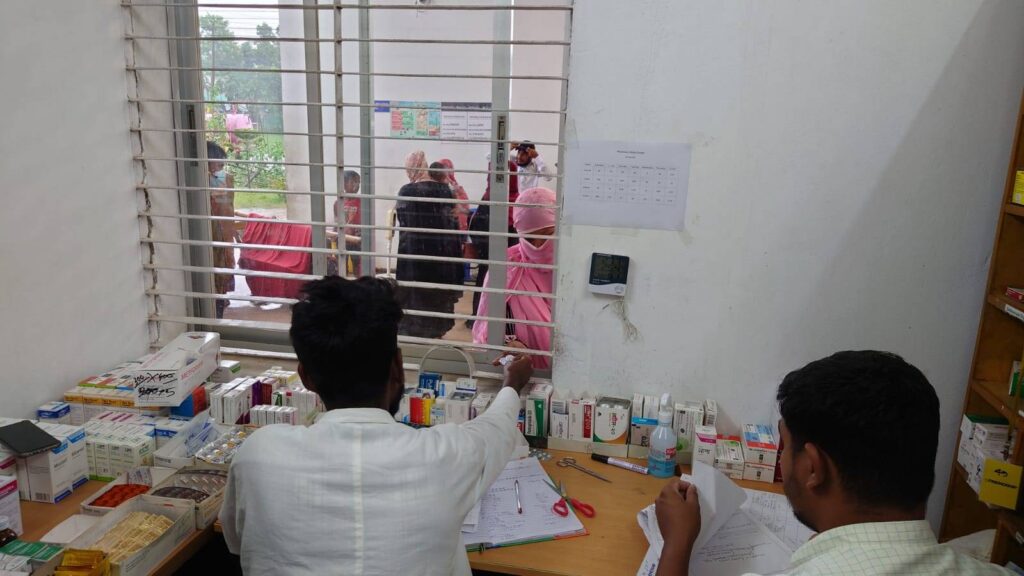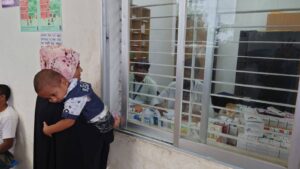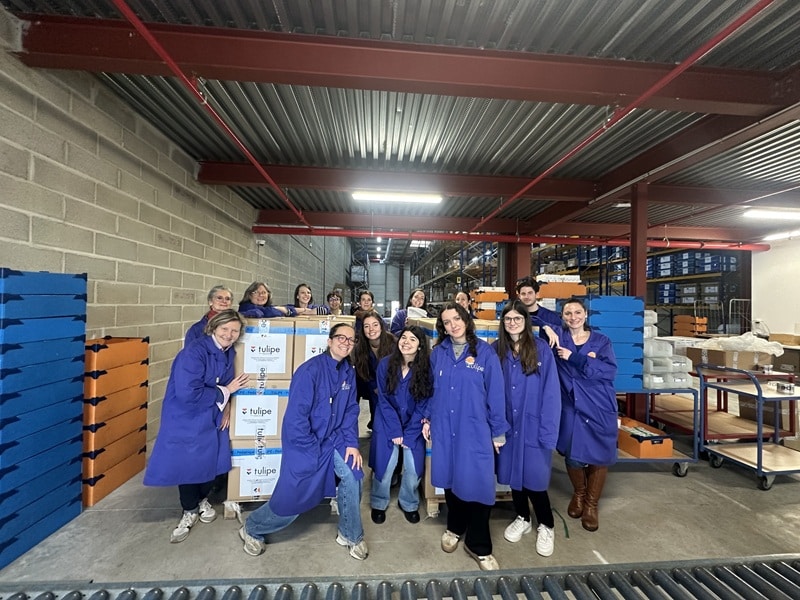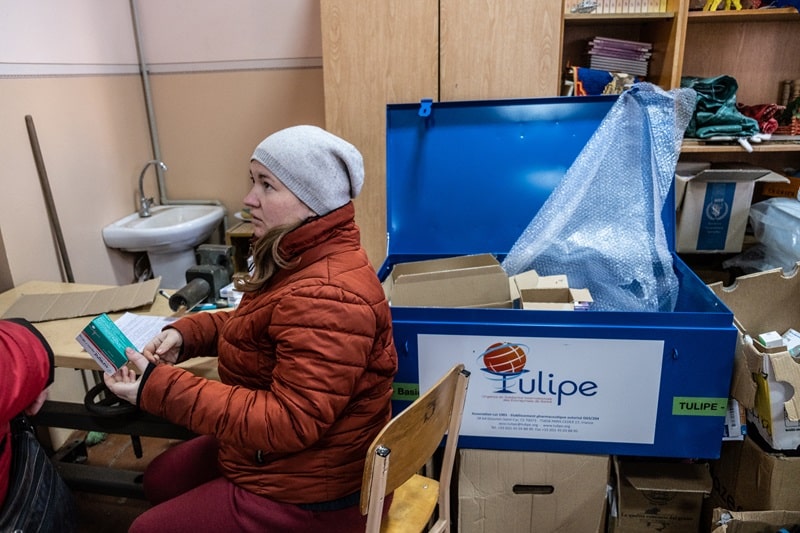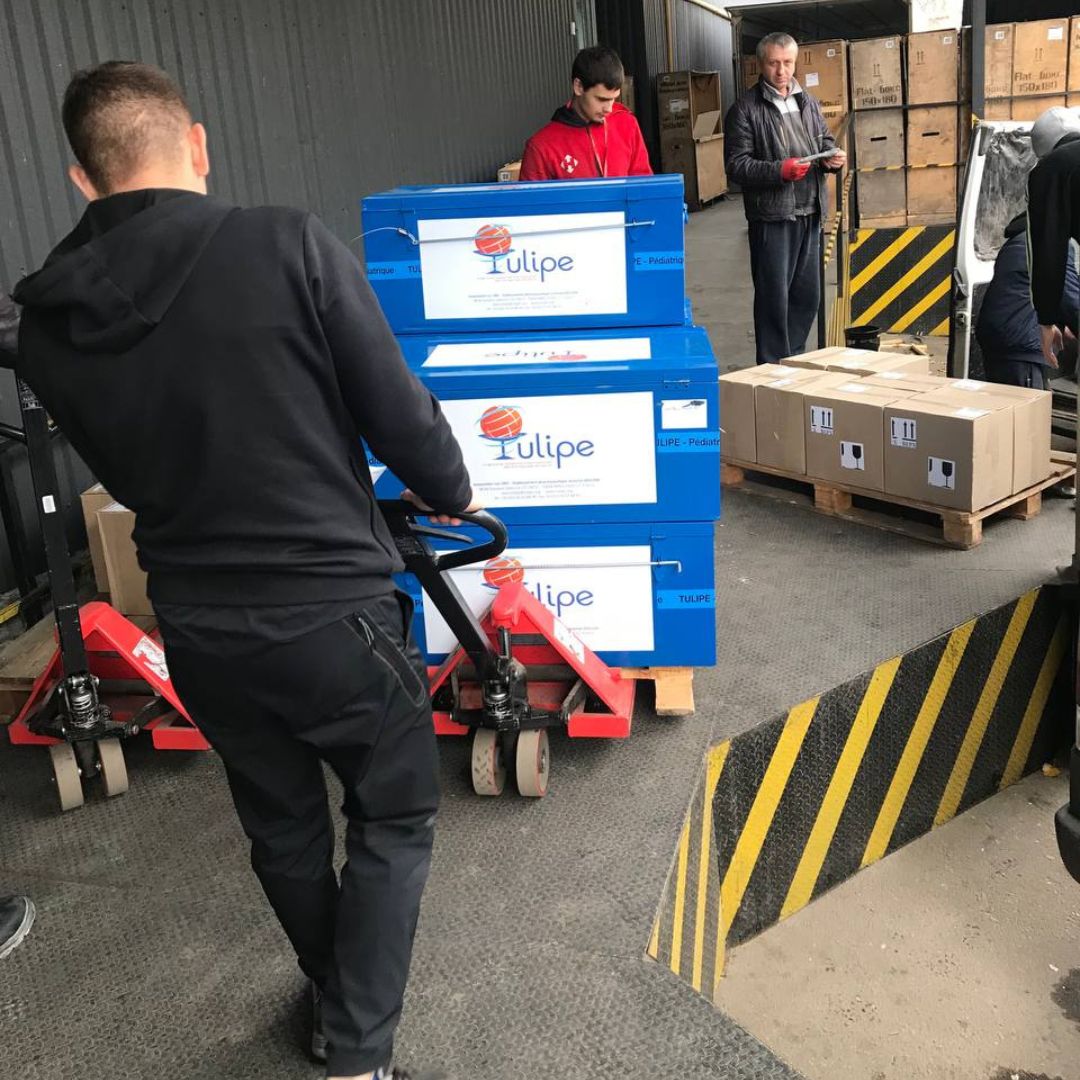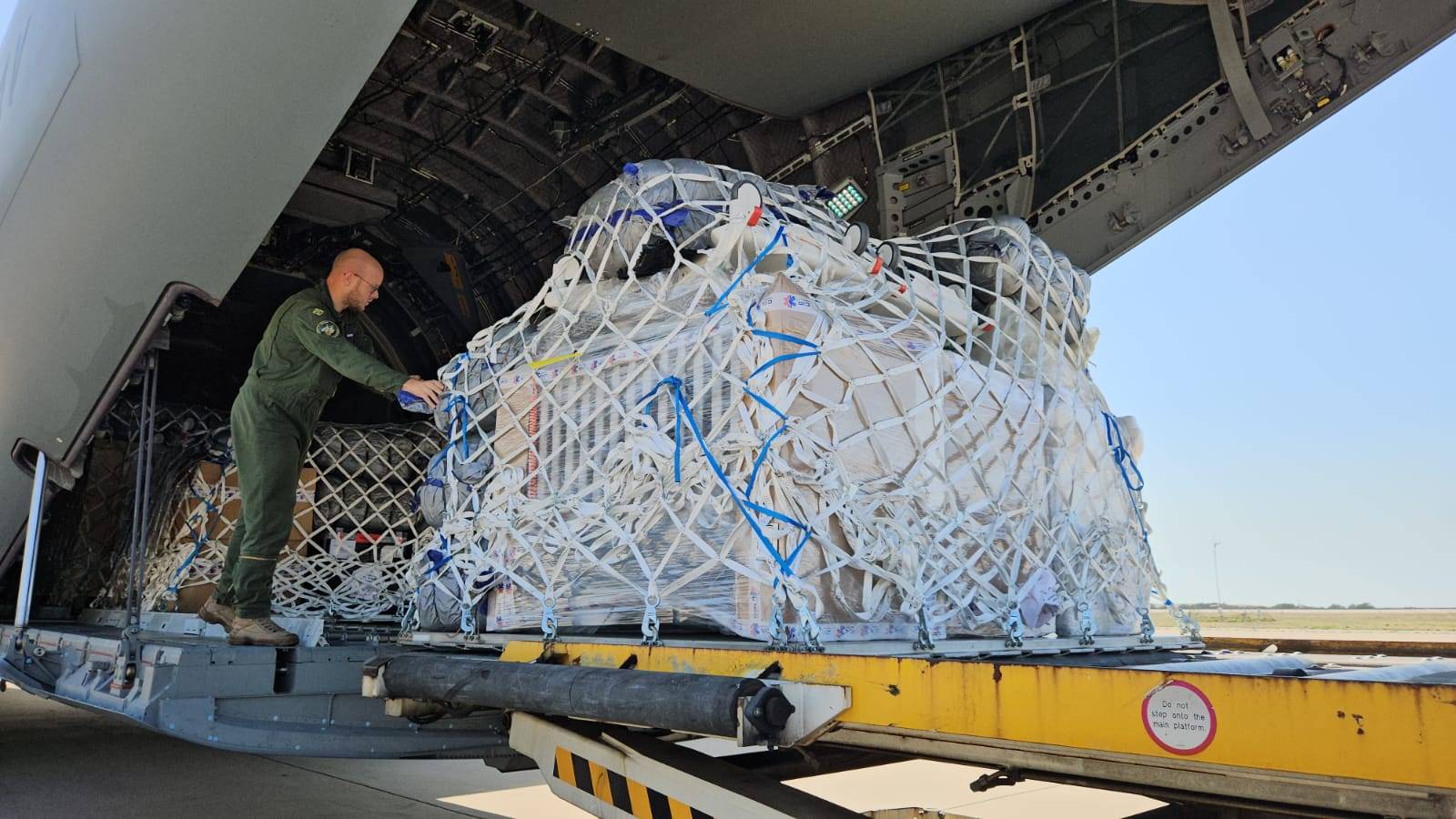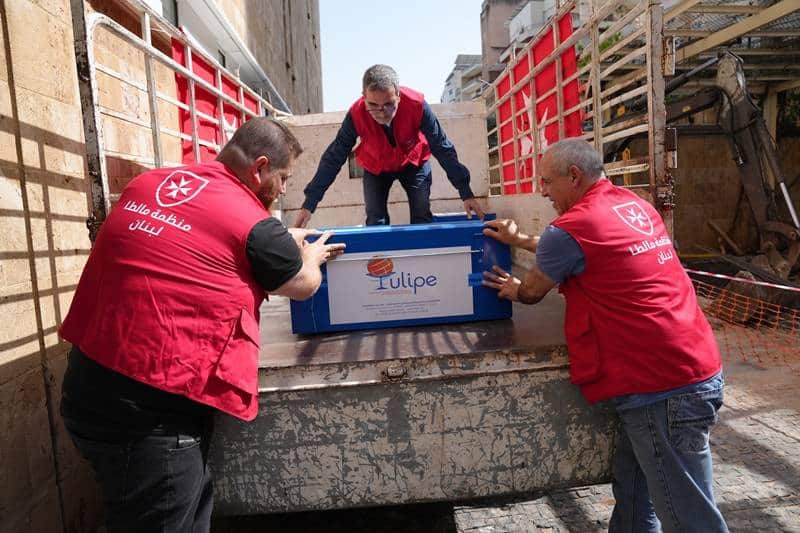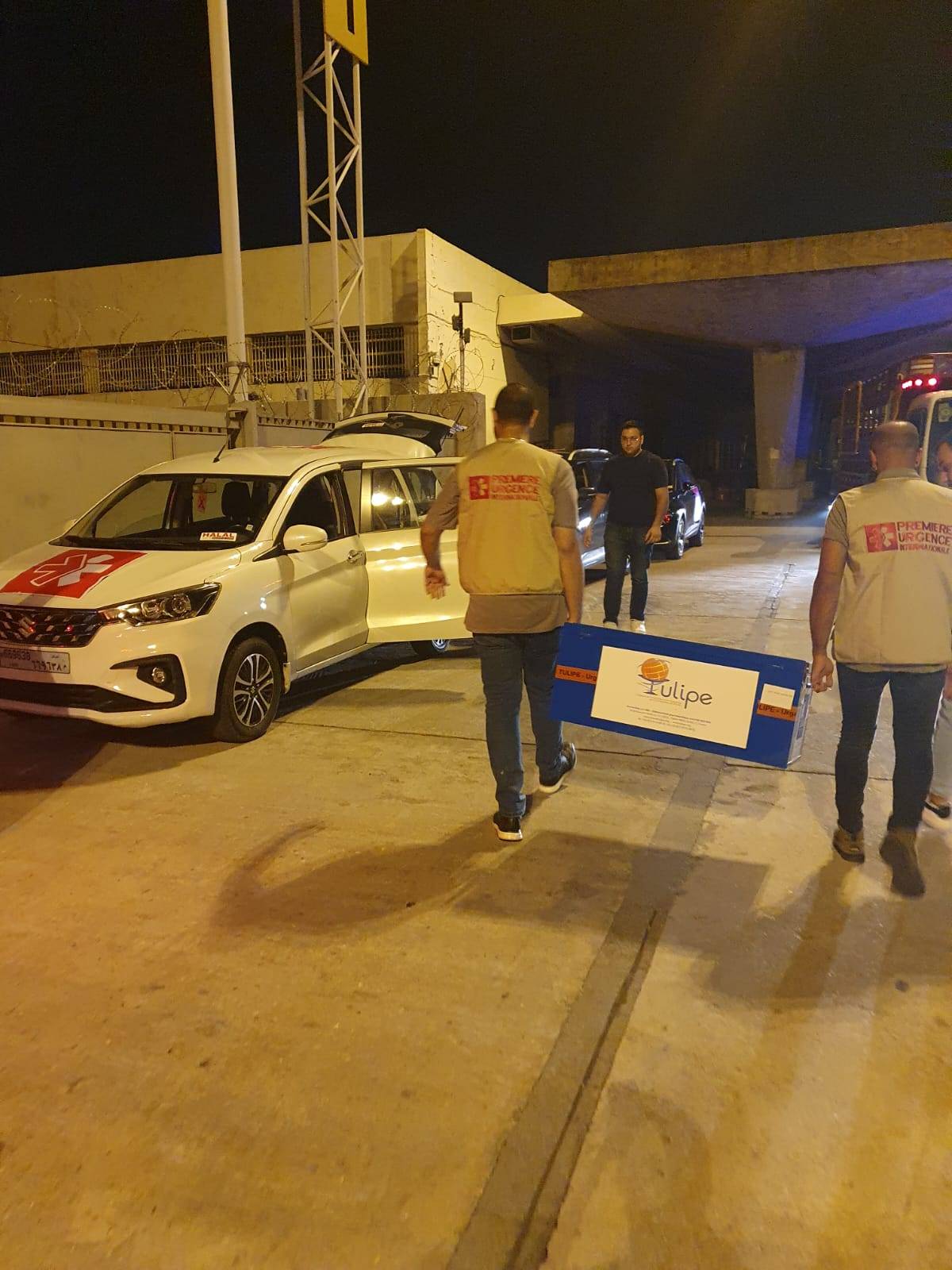[Humanitarian operation in Bangladesh] Last April, the Tulipe association and its member companies sent a shipment of 3.6 tonnes of health products, equivalent to 35,000 treatments, to Rohingya refugees in Bangladesh. This aid was handed over in mid-July to the NGO Friendship, a new Tulipe partner, via the Crisis and Support Centre of the Ministry of Europe and Foreign Affairs.
The health products donated by Tulipe have been distributed over the past few weeks through the medical centres of Camp 7, Ukhiya Hospital and Ukhiya Specialist Hospital, operated by Friendship. In total, these facilities serve around 90,000 people. Dr Rafi Abul Hasnath Siddique, Deputy Director – Health Sector at Friendship, is working on site for the NGO. He stresses the importance of this collaboration in meeting the urgent health needs of the refugees:
“The medicines donated by Tulipe to Friendship have had a profound impact on our ability to serve the Rohingya communities. With current budget constraints, providing essential medicines is increasingly difficult. These donations have enabled us to meet critical health needs, treating common illnesses such as respiratory infections, diarrhoea and skin conditions. These medicines have not only alleviated suffering, but have also ensured continuity of care for vulnerable populations, significantly improving our healthcare provision in the camps. This support has been essential in maintaining the health and dignity of the Rohingya people in the face of continuing challenges.
The Rohingya crisis: a global humanitarian emergency
Since the crisis began in 2017, nearly a million Rohingya have fled the violence in Myanmar and taken refuge in Cox’s Bazar, Bangladesh, making it one of the largest refugee camps in the world. Last March, the International Organisation for Migration (IOM) launched an appeal for $119 million to support these refugees, focusing on essential needs such as health, accommodation and access to drinking water. This appeal is part of an overall plan to raise 852.4 million dollars to help the 1.35 million people affected by this crisis. 70% of these refugees have no suitable shelter and 50% have no access to drinking water. This is a major humanitarian crisis”, says Oxfam International.
The NGO Friendship: a sustainable humanitarian response
Founded in 2002 by Runa Khan, the NGO Friendship has been working for over two decades to improve the living conditions of marginalised communities in Bangladesh. It focuses its efforts on isolated rural areas and regions particularly affected by humanitarian and environmental crises. With a staff of nearly 5,000, the majority of whom are from the communities it serves, Friendship is committed to providing sustainable and innovative solutions in the areas of health, education and economic development.
A fragile socio-economic context in Bangladesh
Bangladesh continues to face major socio-economic and environmental challenges. In 2023, the country recorded negative net migration of -309,977 people, an indicator of the difficulties of mobility and living conditions. The unemployment rate reached 4.2%, while inflation climbed to 7.7%. On the environmental front, although 99% of the population now has access to electricity, only 31% has access to safely managed sanitation services, underlining the need for greater humanitarian action.
In this difficult context, the work ofNGOs such as Friendship, in partnership with associations such as Tulipe, is crucial in providing solutions for the most vulnerable, particularly in areas affected by the Rohingya refugee crisis.
